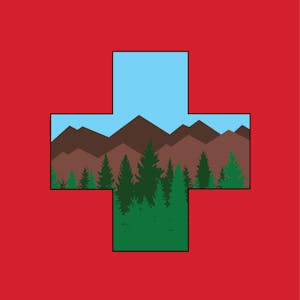Discover the essential skills to handle medical emergencies in the wilderness with the Wilderness First Aid course. This specialized program equips you with the knowledge to assess, stabilize, and potentially evacuate injured individuals in remote settings. Through a series of engaging modules, you will delve into the unique clinical environment of wilderness medicine, learning how to address medical problems and traumatic injuries effectively.
Throughout the course, you will gain insights into identifying and treating common medical issues encountered in a wilderness setting, including environmental emergencies and traumatic injuries. From understanding the basics of wilderness medicine and maintaining scene safety to evaluating potential spinal cord injuries and treating environmental injuries, you will acquire valuable skills to enhance your safety and that of your group in low medical resource environments. The curriculum features real-life scenarios and stories from wilderness experts and medical professionals, providing practical knowledge that can be applied in diverse outdoor situations.
Certificate Available ✔
Get Started / More Info
Enhance your expertise in wilderness first aid through four comprehensive modules. Gain practical knowledge on assessing, treating, and preventing medical issues in remote environments to ensure safety and effective response in challenging situations.
Discover the basics of wilderness medicine and the unique clinical environment it presents. Learn how to perform a basic assessment of a patient, gather history data, and evaluate potential spinal cord injuries. Gain insights into maintaining scene safety and preparing for medical emergencies in remote settings.
Explore the identification and treatment of common traumatic injuries in the wilderness. Learn to differentiate between blunt and penetrating trauma, address injuries of the chest, abdomen, and pelvis, and recognize different types of head trauma. Acquire the skills to identify conditions requiring immediate evacuation.
Delve into the treatment of common medical conditions involving the heart, lungs, brain, and abdominal and genital organs in a wilderness setting. Understand when to evacuate and learn preventive measures to reduce the risk of developing diseases in remote environments.
Learn to address environmental injuries, including animal bites/stings and temperature-related emergencies such as heat or cold-related issues. Gain insights into camp hygiene and understand the necessary actions in the event of evacuation in remote settings.
Palliative Care Always is a specialization designed for healthcare practitioners, patients, and caregivers to develop primary palliative care skills and improve...
This course provides comprehensive training for healthcare workers on recognizing, stabilizing, and treating patients with COVID-19, including those with severe...
Introduction to Integrative Nursing is a comprehensive course designed for nurses seeking to enhance their practice with a focus on whole-person care, healing, and...
Prepare for the EMT Certification Test course provides comprehensive preparation for the NREMT exam, focusing on real-life application of knowledge and skills, peer...